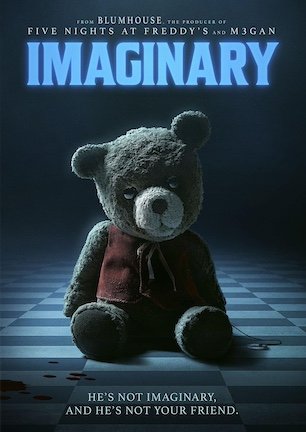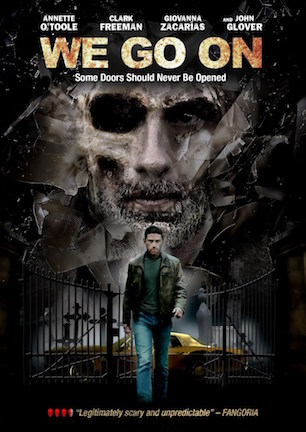Studio: Phase 4 Films
Director: Joseph O’Brien
Writer: Joseph O’Brien
Producer: Joseph O’Brien, Mark Opausky, Motek W. Sherman
Stars: Maria del Mar, Casey Hudecki, Samantha Wan, Amanda Joy Lim, Craig Porritt, Shara Kim, Adrienne Kress, Frank Moore, David Hayter
Review Score:
Summary:
A trio of kidnappers attempting to ransom two Japanese girls finds themselves haunted by nightmares along a remote road.
Review:
With a pair of Japanese exchange students bound and gagged inside the trunk of their Cadillac, a trio of kidnappers takes a wrong turn down a remote highway of dream logic situated somewhere between Gatlin, Nebraska and Twin Peaks. Lost on a road to nowhere and at each other’s throats over a heist gone haywire, the group finds themselves haunted by nightmarish visions inside a collapsing reality as figurative and literal ghosts materialize to terrorize them.
“Devil’s Mile” promotes itself as “a relentlessly-paced hybrid of gritty crime thriller and Lovecraftian supernatural horror,” a claim I might agree with if it removed the words relentlessly-paced, gritty, Lovecraftian, and thriller. Featuring a gape-mouthed ghost engaged in a circular curse, “Devil’s Mile” has more in common with J-horror than with H.P. Lovecraft’s Dream Cycle. And its idea of “gritty” is to pollute the script with incessant arguing and enough unnecessary uses of the F-word to rival the entirety of Quentin Tarantino’s filmography. The following is an actual dialogue exchange transcribed word for word:
Jacinta: “How come you get to call Mr. Arkadi Jeffrey and the rest of us gotta call him Mr. Arkadi?”
Toby: “Oh, um, because… f*ck you!”
Jacinta: “You… f*ck you.”
Toby: “F*ck you!”
Cally: “F*ck.”
Jacinta: “F*ck you!”
Toby: “Hey, f*ck you!”
Jacinta: “F*ck you!”
Toby: “You f*ck you!”
The ridiculous rate at which the F-bombs fly, particularly during any scene involving David Hayter, would be comical if it were not predominantly obnoxious. The leads are already unlikable louts for being loudmouthed criminals who can’t even pull off a job properly. Burdening them with worthless words concentrated on empty obscenities merely keeps their character development wheels spinning pointlessly in the muck.
David Hayter just might be pouring it on a tad too thick.
Lead actor David Hayter is well-known as the voice of Snake in the “Metal Gear Solid” video game series, as well as for penning the scripts of superhero blockbusters like “X-Men.” For this rare turn on the other side of the lens, Hayter oddly overdoses on intensity as though performing in a theater play, ensuring that even the last guy in the back row can clearly see every exaggerated expression.
Hayter’s angry hood character throws more tantrums than a pop star diva after a lousy show. Reactions consist exclusively of scrunching his face as though staring directly into a blazing hot desert sun. It could be first-time feature filmmaker Joseph O’Brien’s inexperience as a director failing to temper Hayter’s instinct to overdo it. Or it could be Hayter’s familiarity with a sound booth not instilling him with the tools it takes to dial in the physicality of a performance. Either way, the actor’s over-the-top-and-then-some antics hint at why his more notable Hollywood work has come in an off-camera capacity.
Less invasive camerawork can be seen in any average colonoscopy. “Devil’s Mile” determinedly turns its camera into a battering ram, cutting from extreme close-up to extreme close-up in conspicuous fashion. Faces are almost unilaterally framed from eyebrow to top lip. Scenes themselves are alternately overblown or underlit. Daytime shots take place in blinding white natural light washing every other color out to sea. Dreamscape sequences occur in pitch black lit by one red light and one green light. The whole movie bears the look of an experimental film using the cheapest production package available from the rental facility.
"Devil's Mile" borrows from more than just the "Devil's Due" poster.
O’Brien is overconfident that emulating techniques of his cinematic influences is enough to create a unique feeling for his own film. Except nothing ever gels into more than a mismatched amalgamation of non sequitur styles. O’Brien borrows most from David Lynch, with scenes including a symbolic horse appearing seemingly without context (“Fire Walk With Me”), and being in two places at once over the phone (“Lost Highway”). Other ideas, such as placing the camera in a sink so faucet water can splash the lens for one second, smack of presuming something to be visually interesting without considering why the setup makes sense or what it says to the audience. “Devil’s Mile” is a film rooted in surreal unreality, yet there is no indication of conscious thought behind what anything’s intended purpose is or how it pertains to a discernible, unifying theme.
O’Brien’s slim cast roster and minimalist production design give him no more toys than can fit in a sandbox of reasonable low-budget scope and attainable goals for limited experience. But the overall intention of what he wishes to put across as a story is crowded by an unclear artistic vision. Resultantly, “Devil’s Mile” is a confused checkerboard of overstepped ambitions and out-of-place concepts.
Review Score: 30







If you want to see impossible amounts of blood explode crimson colors like the world’s worst version of a gender reveal, well, “Abigail” at least has that.